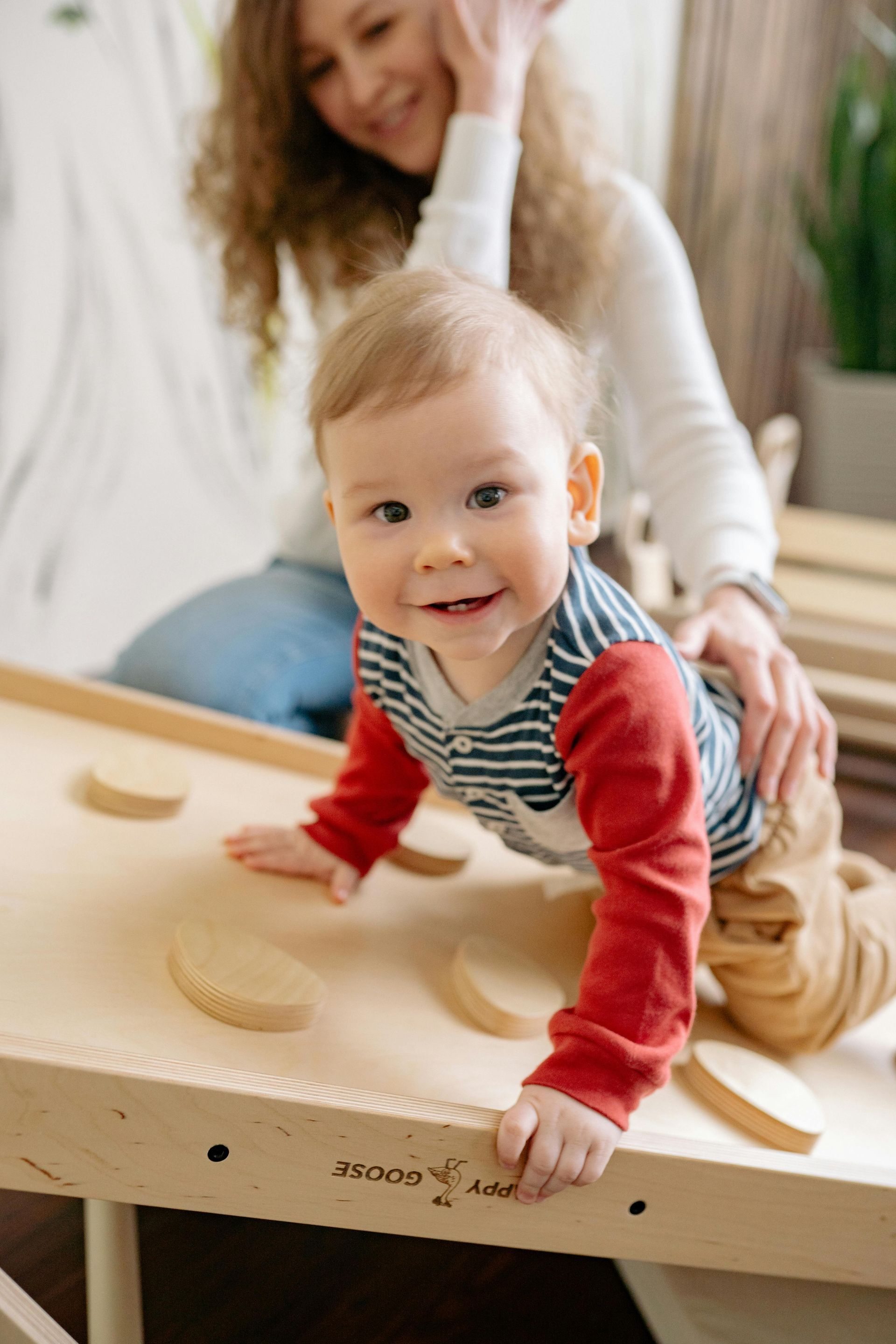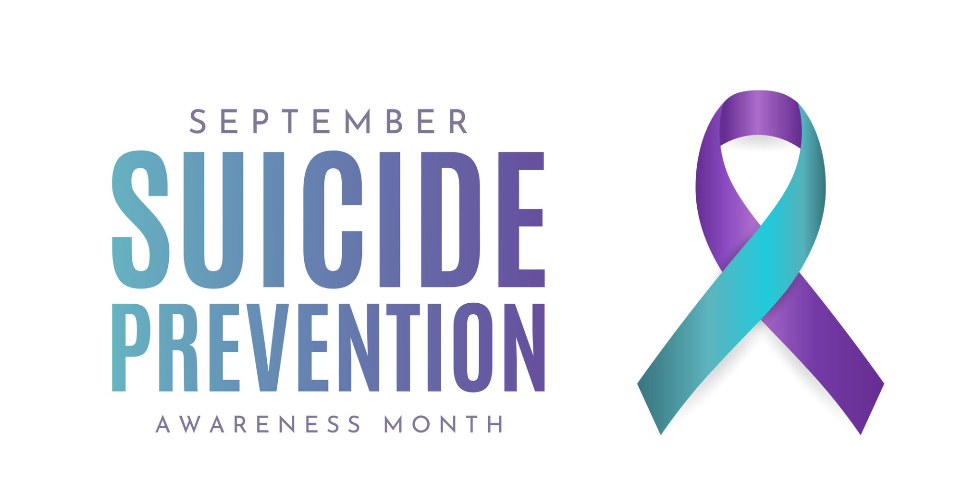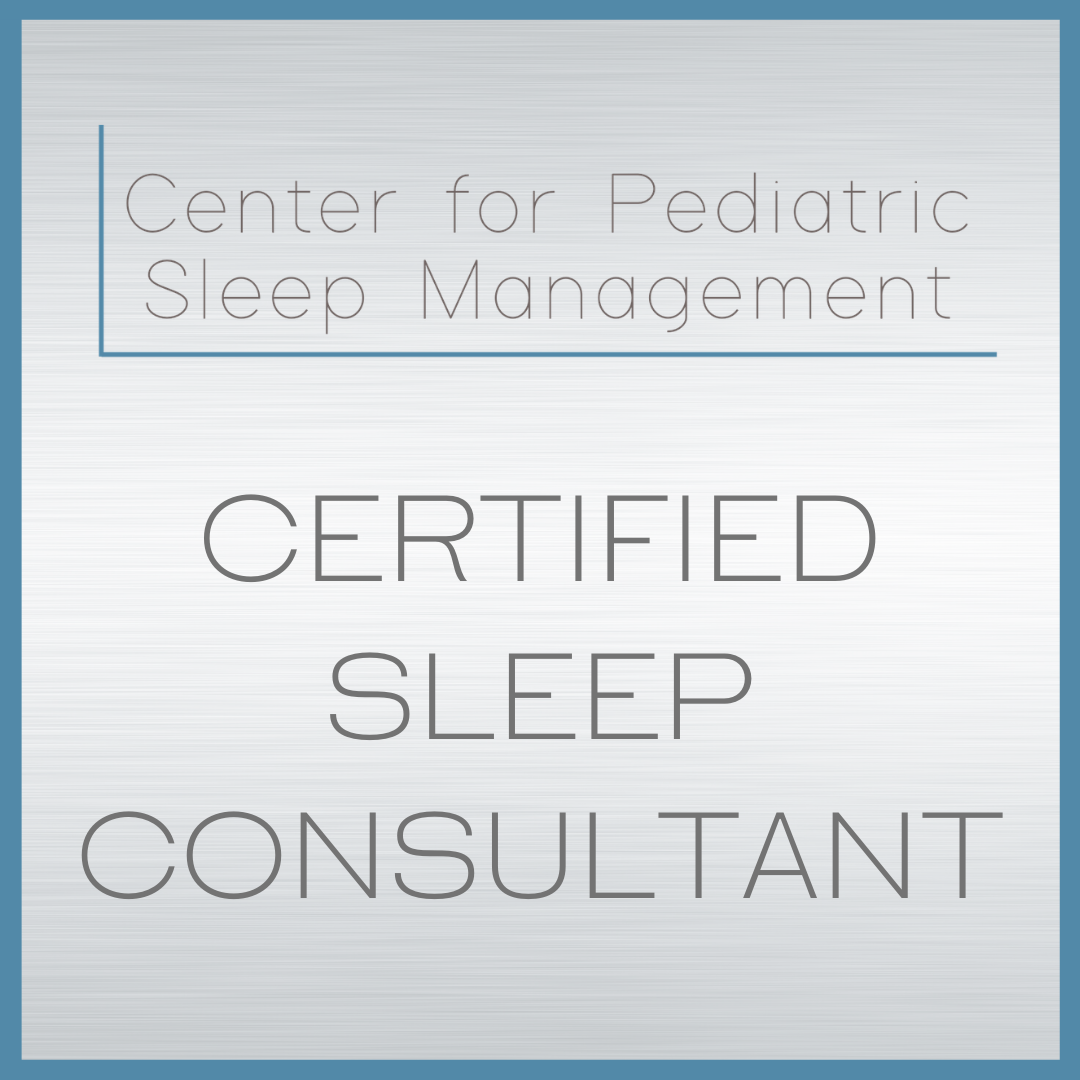Why Your Baby's Sleep Gets Disrupted Between 7–12 Months (And What to Do About It)
Lacy Hess • June 30, 2025
The 7–12 Month Sleep Regression: Why It Happens and How to Get Through It

If your baby was once a decent sleeper but is now suddenly waking more often at night or struggling to fall asleep, you’re not alone. Between 7–12 months of age, sleep disruptions are incredibly common—even for babies who previously slept well.
The good news?
These regressions are temporary. But understanding why they happen can help you support your baby through this phase and make it out the other side with better sleep for everyone.
1. Developing Mobility 🧠 + 🚶♀️
This is a big season of physical milestones. Around this time, babies are learning to roll, sit, crawl, stand, and maybe even cruise or walk. While this is exciting to witness, it can also be very disruptive to sleep.
Why it impacts sleep: Babies often want to practice these new skills at night. Plus, if they haven’t fully mastered movements like sitting or lying back down, they may get “stuck” and cry for help.
Sleep Tip: Keep your baby in the crib during this stage. It’s the safest and most sleep-conducive environment for a mobile baby. Avoid moving to a toddler bed too soon.
2. Separation Anxiety 😭
At this age, babies begin to develop object permanence—they realize that when you leave the room, you still exist... and that’s a big emotional development. It can cause your baby to become more clingy or upset when you leave at bedtime or in the middle of the night.
Why it impacts sleep: Your baby may cry out for you more often, hoping you’ll come back—even if they don't need anything.
Sleep Tip: Be clear and consistent with your bedtime routine. If you say “goodnight, see you in the morning,” stick to that unless something truly needs your attention. If possible, share bedtime responsibilities with another caregiver to avoid creating a strong sleep association with just one parent.
3. Transitioning from Breastmilk to Formula 🍼
Some families begin transitioning to formula during this age, and that switch can temporarily throw things off.
Why it impacts sleep: Babies may reject the formula at first due to the taste or different nipple flow, leading to hunger or fussiness during the night.
Sleep Tip: Introduce formula slowly—one feeding at a time—and try different bottles and nipple types to find one your baby likes. Patience is key during this transition.
4. Teething 😬
Teething often starts around 6 months, and by 7–12 months, it’s in full swing for many babies. While it’s not always the main reason for sleep issues, it can add another layer of discomfort.
Why it impacts sleep: Some babies may wake more frequently when new teeth are pushing through, although many tolerate it better than expected.
Sleep Tip: Offer a cold washcloth or a teething toy before bedtime to help soothe the gums. You can also consider a dose of Tylenol if your pediatrician recommends it.
You’re Not Doing Anything Wrong
Sleep disruptions at this age are normal and not a reflection of your parenting. The key is to stay consistent, create a calming bedtime routine, and give your baby the opportunity to develop independent sleep skills—even during challenging phases.
Need Help Navigating This Sleep Regression?
If your baby’s sleep has taken a turn and you're not sure what to do next, I’m here to help.
📞 Book a free 30-minute consultation to talk through your current sleep challenges and explore how we can bring sleep back to your home.
📩 And don’t forget to sign up for my free newsletter—you’ll get weekly sleep tips, expert advice, and helpful tools straight to your inbox.
Let’s make sleep a priority again—for both you and your baby.




